homemade dog food add ins
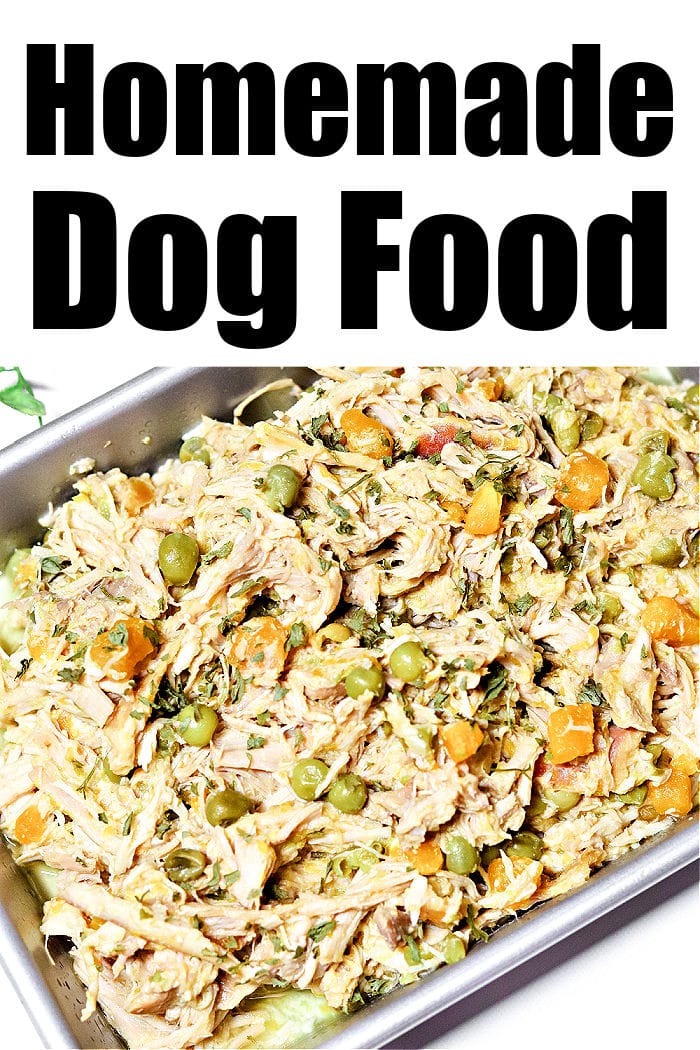
Homemade dog food is a great way to provide your pet with a healthy and nutritious diet. However, it can be difficult to know what ingredients to include in order to make a complete and balanced meal. That's where add-ins come in.
Add-ins are extra ingredients that can be added to homemade dog food to boost the nutritional value and palatability of the meal. They can also help to make the food more interesting and appealing to your dog.
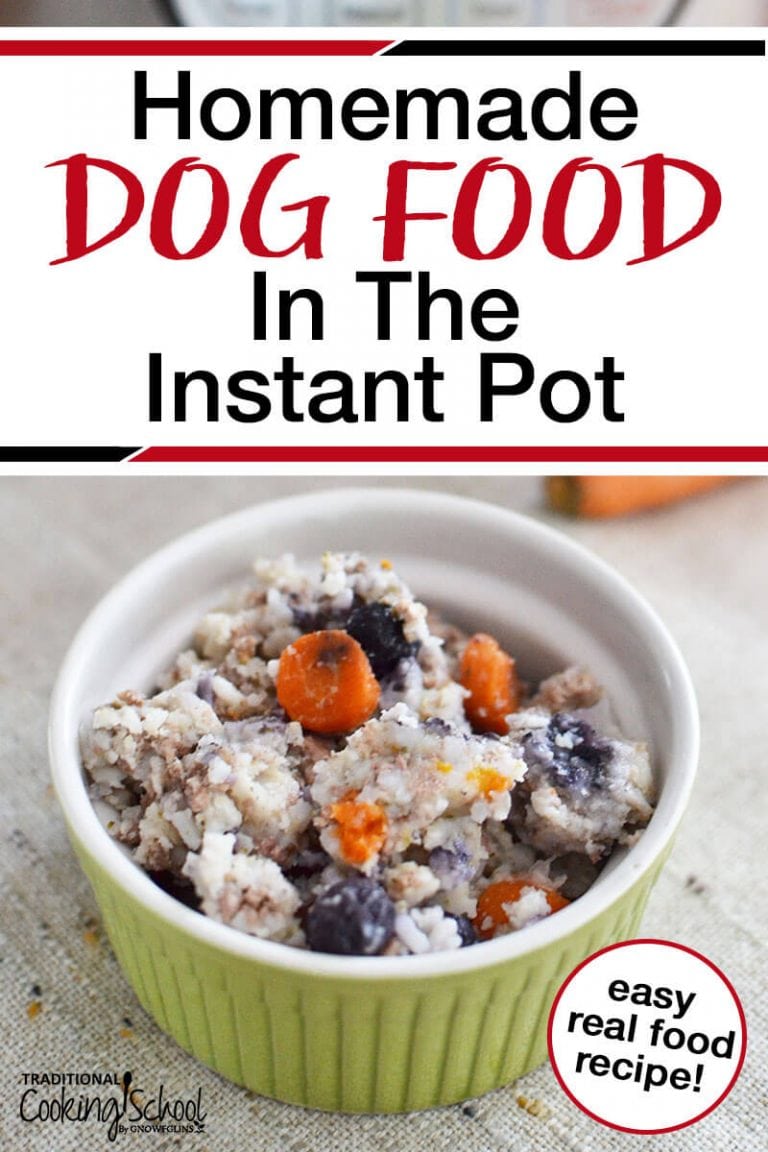
There are many different types of add-ins that you can use, so you can customize the food to your dog's individual needs and preferences. Some of the most popular add-ins include:
- Meat: Beef, chicken, pork, lamb, fish, and organ meats are all good sources of protein for dogs.
- Vegetables: Carrots, peas, green beans, broccoli, zucchini, and spinach are all good sources of vitamins, minerals, and fiber for dogs.
- Fruits: Apples, bananas, strawberries, blueberries, and peaches are all good sources of antioxidants, vitamins, and minerals for dogs.
- Grains: Brown rice, oatmeal, barley, and quinoa are all good sources of carbohydrates for dogs.
- Seeds and nuts: Flaxseeds, chia seeds, sunflower seeds, pumpkin seeds, and almonds are all good sources of omega-3 fatty acids, protein, and fiber for dogs.
- Yogurt: Plain yogurt is a good source of probiotics, which can help to improve your dog's digestive health.
- Eggs: Eggs are a good source of protein, vitamins, and minerals for dogs.
When choosing add-ins for your dog's food, it is important to consider their age, size, and activity level. You should also make sure to avoid any ingredients that your dog is allergic to.

If you are unsure about what add-ins to use, you can always consult with your veterinarian. They can help you create a customized diet that is perfect for your dog's individual needs.
Here are some tips for using add-ins in homemade dog food:
- Start by adding small amounts of each add-in to your dog's food. This will help you to identify any ingredients that your dog is allergic to.
- Gradually increase the amount of each add-in over time. This will help your dog to adjust to the new diet.
- Make sure to mix the add-ins thoroughly into the food. This will help to ensure that your dog gets all of the nutrients from the add-ins.
- Store any leftover add-ins in an airtight container in the refrigerator. This will help to keep them fresh.

Homemade dog food with add-ins can be a great way to provide your pet with a healthy and nutritious diet. By following these tips, you can create a meal that your dog will love and that is also good for their health.
Here are some additional tips for making homemade dog food:
- Use fresh, high-quality ingredients.
- Cook the food thoroughly.
- Avoid adding salt, sugar, or other unhealthy ingredients.
- Store the food in an airtight container in the refrigerator or freezer.
- Feed your dog the food within 24 hours of cooking.

If you are considering making homemade dog food, be sure to consult with your veterinarian first. They can help you create a diet that is safe and healthy for your dog.
Homemade Dog Food Recipes
Here are some recipes for homemade dog food that you can try:


Simple Chicken and Rice Dog Food
Ingredients:

- 1 pound boneless, skinless chicken breasts
- 1 cup cooked rice
- 1/2 cup grated carrots
- 1/2 cup chopped green beans
- 1/4 cup chopped peas
- 1 tablespoon olive oil


Instructions:
- Cook the chicken breasts in a skillet over medium heat until cooked through.
- Shred the chicken breasts.
- Combine the chicken, rice, carrots, green beans, peas, and olive oil in a large bowl.
- Mix well.
- Serve the food to your dog.

Beef and Vegetable Dog Food

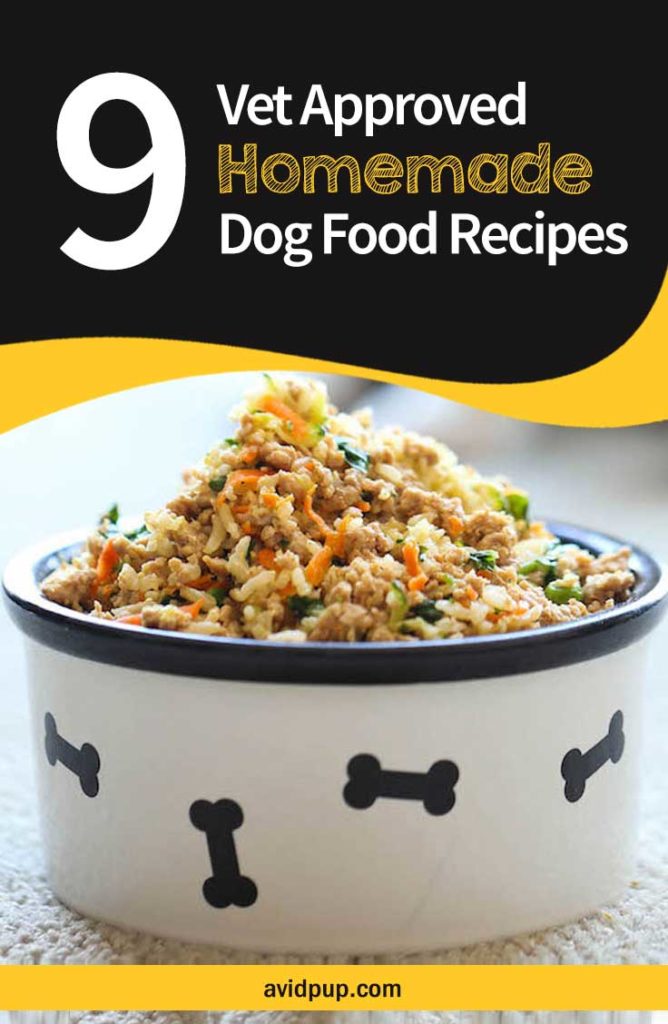
Ingredients:
- 1 pound ground beef
- 1 cup cooked brown rice
- 1/2 cup chopped carrots
- 1/2 cup chopped celery
- 1/2 cup chopped green beans
- 1/4 cup chopped peas
- 1 tablespoon olive oil

Instructions:
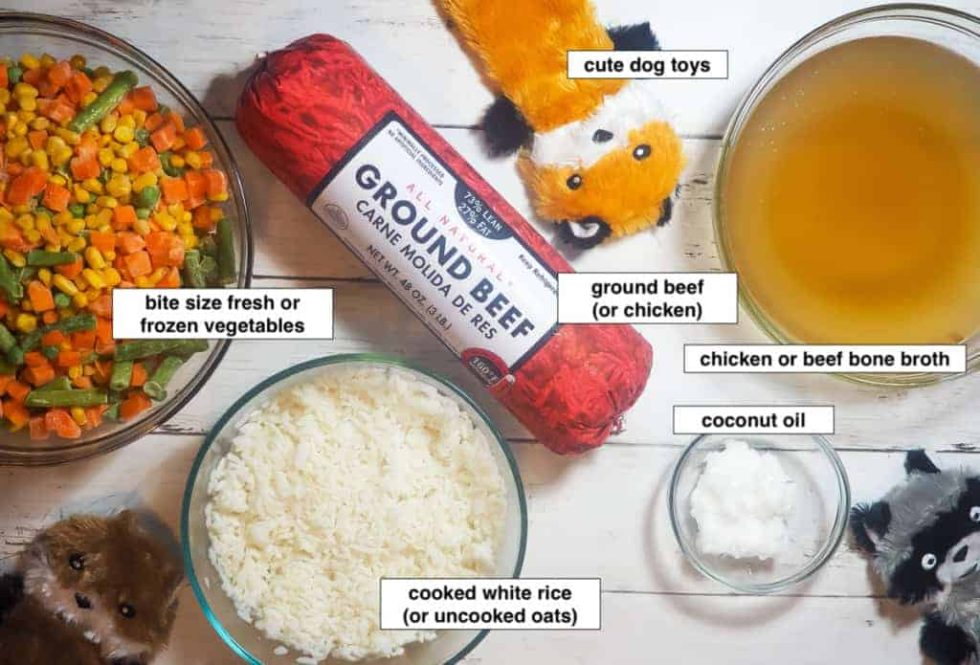
- Brown the ground beef in a skillet over medium





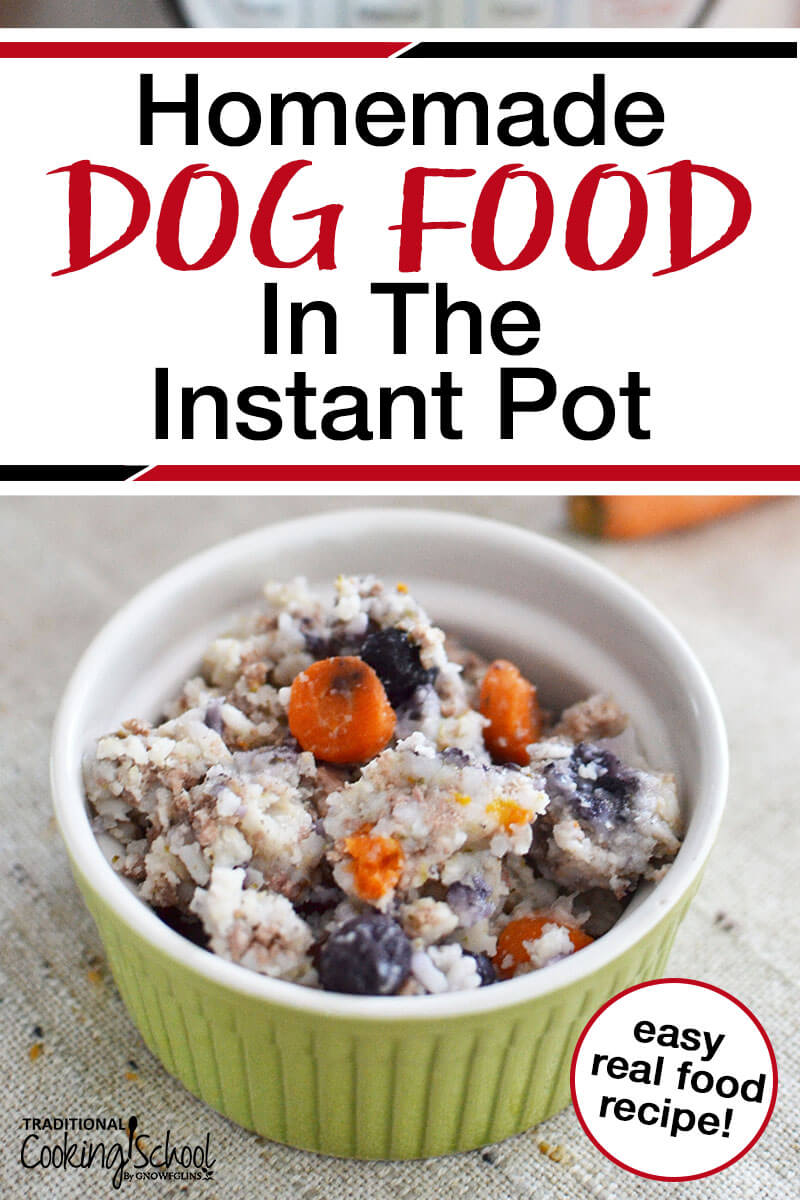

Homemade Dog Food Add-Ins

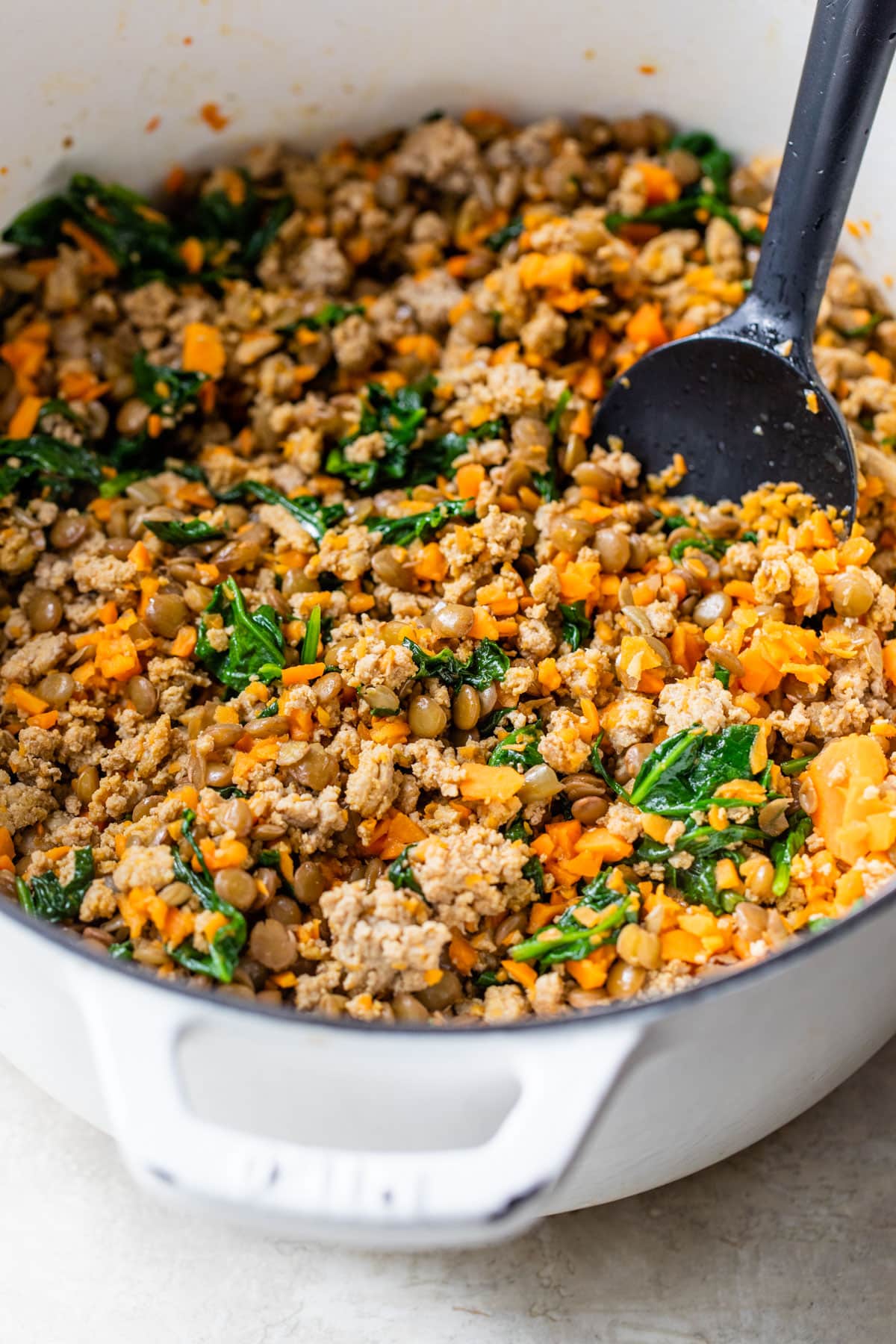
In addition to the main ingredients in your homemade dog food, there are a number of add-ins that you can use to boost the nutritional value of your dog's meals. These add-ins can provide your dog with essential vitamins, minerals, and other nutrients that they may not be getting from their regular diet.

Here are some of the most popular homemade dog food add-ins:
- Fruits and vegetables: Fruits and vegetables are a great way to add vitamins, minerals, and fiber to your dog's diet. Some of the best fruits and vegetables for dogs include apples, bananas, carrots, peas, and sweet potatoes.
- Meat and poultry: Meat and poultry are an excellent source of protein for dogs. When choosing meat and poultry for your dog's diet, opt for lean cuts that are high in protein and low in fat. Some of the best meats and poultry for dogs include chicken, turkey, beef, and lamb.
- Fish: Fish is a great source of omega-3 fatty acids, which are essential for a dog's healthy coat, skin, and joints. Some of the best fish for dogs include salmon, tuna, and mackerel.
- Eggs: Eggs are a complete protein source that are also high in vitamins and minerals. Eggs are a great way to add protein and nutrients to your dog's diet.
- Dairy products: Dairy products, such as yogurt and cottage cheese, are a good source of calcium, protein, and probiotics. Probiotics are beneficial bacteria that can help to improve your dog's digestion.
- Grains: Grains can provide your dog with carbohydrates, fiber, and other nutrients. Some of the best grains for dogs include brown rice, oatmeal, and quinoa.
- Oils and fats: Oils and fats are a good source of energy for dogs. Some of the best oils and fats for dogs include olive oil, coconut oil, and fish oil.
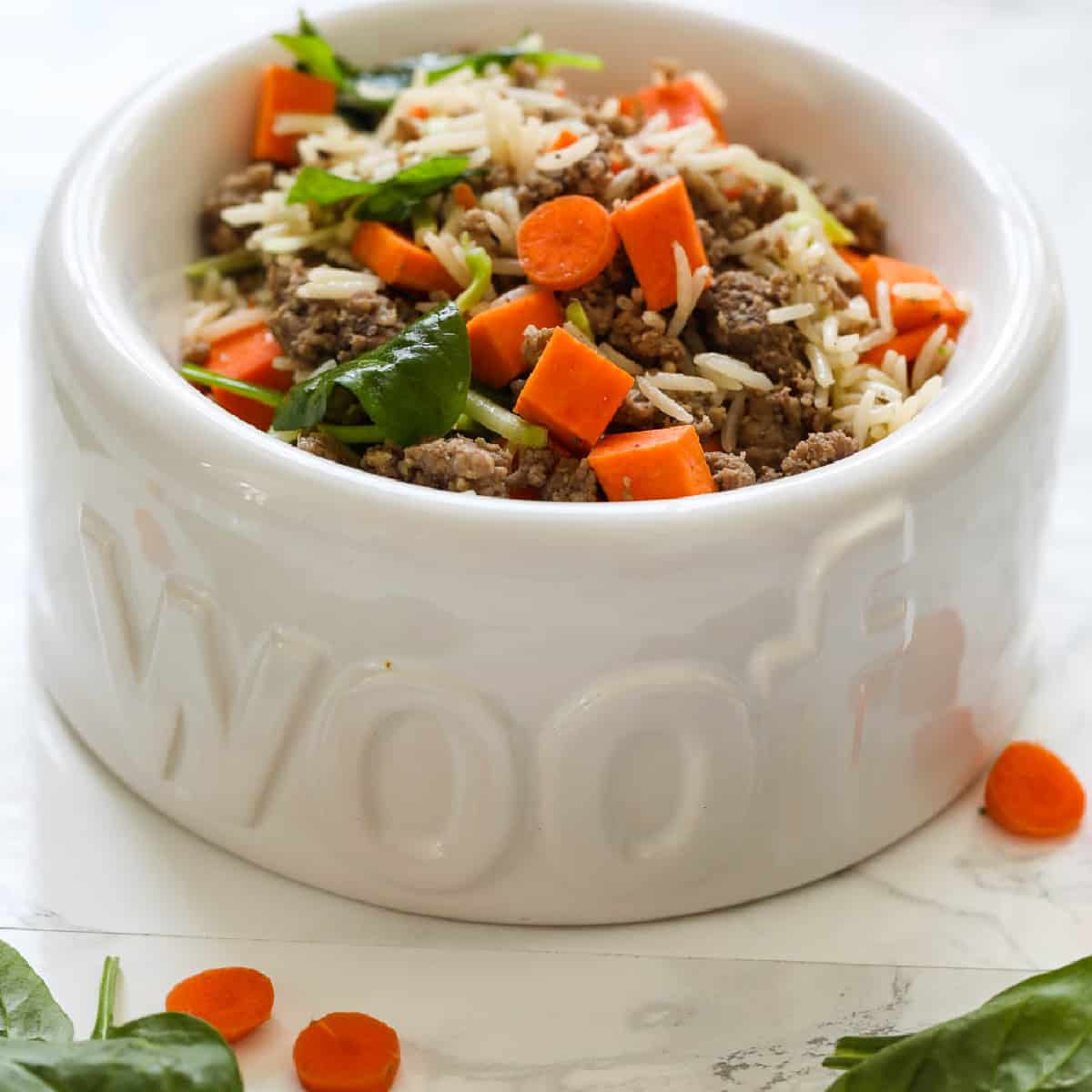
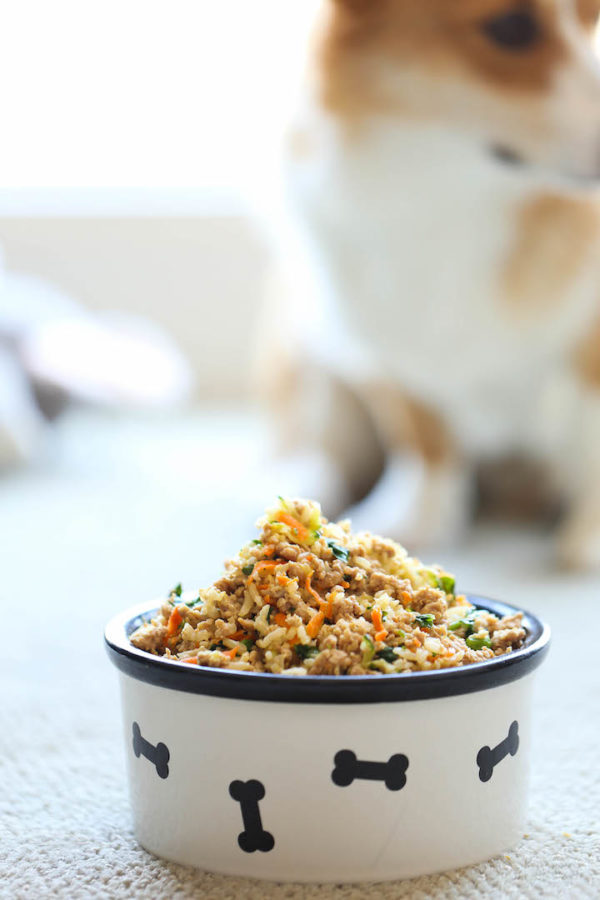
When adding add-ins to your homemade dog food, it is important to moderation. Too much of any one nutrient can be harmful to your dog. Always consult with your veterinarian before making any changes to your dog's diet.

Here are some tips for adding add-ins to your homemade dog food:
- Start by adding small amounts of add-ins to your dog's food and gradually increase the amount over time. This will help you to avoid any digestive problems.
- Choose add-ins that your dog enjoys. If your dog doesn't like a particular add-in, don't force them to eat it. There are plenty of other options to choose from.
- Make sure to balance the nutrients in your dog's diet. Add-ins should be used to supplement your dog's regular diet, not to replace it.
- Talk to your veterinarian before making any changes to your dog's diet. Your veterinarian can help you to create a diet that is specific to your dog's individual needs.


By following these tips, you can help to ensure that your dog is getting the nutrients they need to stay healthy and happy.
